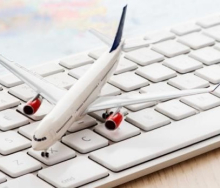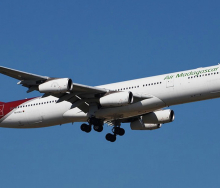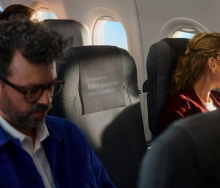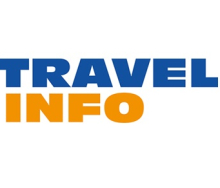WHILE travel into Africa
continues to slow,
South Africans are
not cancelling or postponing
any trips to other parts of
the world, despite recent
reports of Ebola spreading to
the US and Europe.
Earlier this month the
first reported case of Ebola
contracted outside Africa
emerged in Spain, raising a
red flag about the disease’s
reach and resulting in
some airports stepping
up screening procedures.
Heathrow has commenced
screening of passengers at
Terminal 1 and the same is
expected at Gatwick and the
Eurostar entry points.
However, travel from SA to
the EU seems unaffected.
Mark Buck, owner of United
Europe, says: “Ebola is not
affecting our business and
business is still well up on
last year. We have yet to
hear any concern about the
virus in any conversations
with our clients.”
Africa hard-hit
Marco Cristofoli, md
of Harvey World Travel
Southern Africa, says:
“We’ve seen very little
effect on our business
travel clients, with no trip
cancellations as yet. Leisure
travellers seem to be more
cautious.”
He adds that what’s most
concerning is that some of
the group’s agencies have
had group cancellations for
trips to African countries not
affected by the disease.
Isla Moffet, Arik Air’s
manager of sales and
marketing for South Africa,
Arik Air, says the airline has
seen a drop in corporate
travel to Nigeria as South
African nationals are
only visiting for essential
purposes. However, she
adds: “We currently operate
on a daily basis between
Johannesburg and our
hub of Lagos and have no
intention of cancelling any of
these flights. We are in fact
heading into a high-season
period for this route.”
Jonathan Gerber, director
of TAG, says although people
have not stopped travelling,
there are certainly concerns,
and travel into Africa is
under pressure. “If people
aren’t concerned by Ebola,
then they need to be. It
is very close to pandemic
status. In this day and
age of open borders and
global travel it is a harsh
reality. Heaven help us if
we somehow pick up a few
casualties and become a
risky destination,” he says.
Bronwyn Philipps, md of
HRG Rennies Travel, says
the Ebola outbreak has
created an enhanced focus
on corporate duty of care
programmes. “Although WHO
assures travellers that the
risk of contracting Ebola is
low, there is a real fear that
returning travellers could
be infected. As a result, a
number of our corporate
clients have restricted travel
to Ebola-affected countries,”
she says.
Bronwyn adds, however,
that travel to these areas
has also decreased because
it has become more complex
to get there. “Numerous
airlines have suspended
flights to Liberia, Sierra
Leone and Guinea; many
governments have issued
travel bans, some have
stopped issuing visas and
others have closed their
borders to travellers from
the infected region,” she
says.
However, Tlali Tlali,
spokesperson for SAA,
says intra-African travel has
been limited only as far
as the countries that have
been identified as high-risk
areas. “Travel to the rest
of the continent continues
unabated and is very
robust,” he adds.
Meanwhile Iata, in line
with the World Health
Organisation, continues to
recommend against travel
restrictions and border
closures. Tony Tyler, Iata’s
director general and ceo,
says: “The airline industry
is taking its guidance from
WHO and public health
authorities to keep flying
safe for passengers and
crew. Travellers should be
reassured. WHO has clearly
said that the risk of Ebola
transmission on board an
aircraft is very low. WHO is
not advising any restrictions
on travel.
Ebola concerns limited to Africa – for now
31 Aug 2016 - by Chana Boucher
Comments | 0













